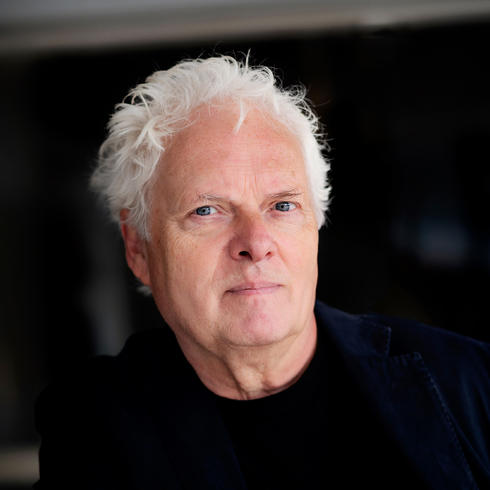
" A House of Call "
For orchestra
Ed. Ricordi
2023 SELECTION
- Nominated for : The Musical Composition Prize 2024
14'
A House of Call is a songbook for an orchestra, divided into four chapters:
Stone Scissors Paper
Grain de la Voix
Wax and Violence
When Words Gone
"A House of Call is a cycle with calls, invocations, appeals, incantations, prayers, speech acts, poems and songs for a large orchestra. But the orchestra isn’t making the call; it is confronted with the voices. It presents, supports, accompanies them, answers or objects to them – as in a secular “responsory.” As an orchestra’s collective response to the many individual voices with their own distinct sounds and languages. They are solely acoustically present.
Either they call from the past or from my personal environment: peculiar voices, traditional popular material, rituals, literature.
A House of Call is not an academic media archive, but rather a phonographic collection from my imaginary notebook. It doesn’t follow any system.
Its sources arose from many trips, chance encounters, scattered research for artistic projects, and sometimes for projects that ultimately couldn’t be realized.
Voices that touched, unsettled, impressed, and alienated me are given a chance to speak in this concert, and most of them are heard for the first time on a concert stage. Around half of the voices were recorded using historical phonographs on wax cylinders and their genesis is often unclear. A range of reasons may have led to these recordings: ethnomusicological or musical and linguistic research, sociological, anthropological interests, but also racist motives whose colonial contexts may have shaped them.
Sometimes the motivations can’t be singled out.
I can’t eliminate the contradictions; I can only work on them artistically:
what connects or separates the recordings made of an Armenian opera singer in the 1910s in Paris from the recordings of the voices of Georgian prisoners of war in the camp in Mannheim around the same time? What separates the recordings of the music scholar Samuel Baud-Bovy, who spent time traveling through the islands of Greece and recorded Ekaterini Mangoúlia from those of a self-proclaimed anthropologist who, at the same time, summoned people to a police station in South West Africa, measured them, violently made casts of their faces and took recordings he was never interested in again? What could the ritualized forms of language in the shamanic discourse of Luciano and Victor Martínez have in common with those of Heiner Müller, Gertrude Stein or Samuel Beckett? And what happens during the many shifts in media – from the historic cylinders into the digital samples, from the samples into the concert, the concert into the book?
The music is a direct answer to the complexity and rawness of the voices, their aura and the history of these recordings.This book offers a look into the material and its backgrounds – and into questions they give rise to between preservation and appropriation. Both works – the composition of the orchestral work and the material counter of the research in book form – were completed in March 2020."
Heiner Goebbels

